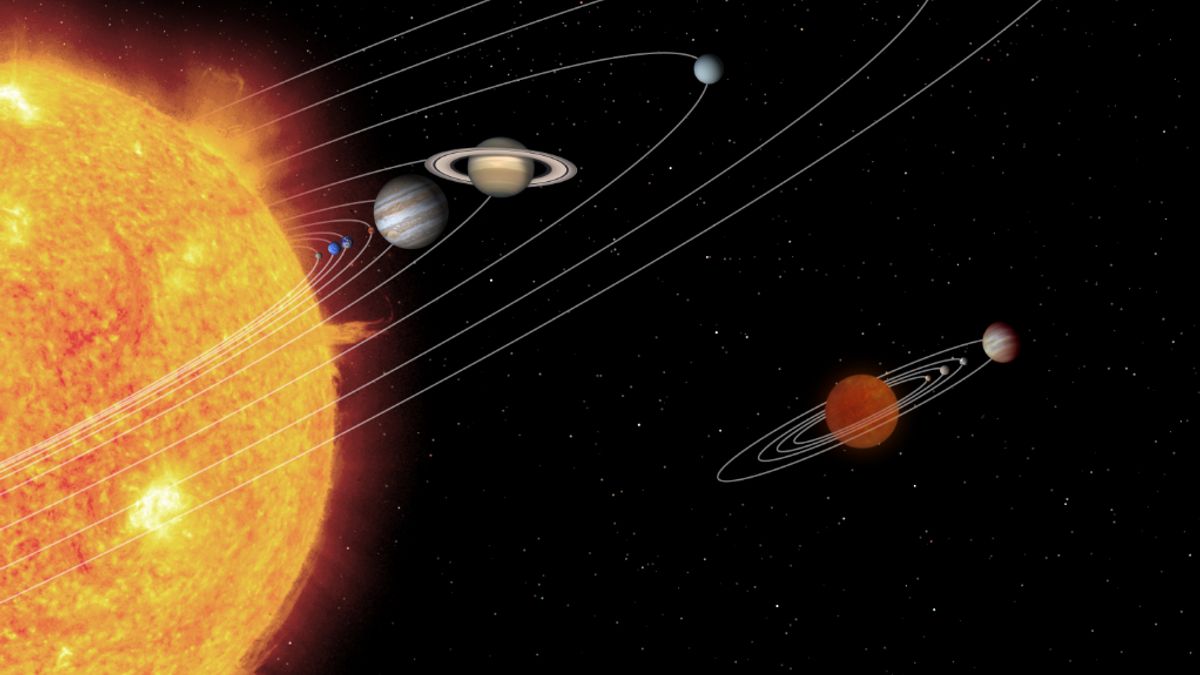The Age Of The Sun
The Historic period Of The Sun Is Just 5 Billion Years, Humans In The Future Will Flee To Which Planet?

Djakarta - The remaining age of the Sun is estimated to be only 5 billion years. When that happens, planet Globe is predicted to be destroyed and all that'southward left is Jupiter. The astronomers' predictions were issued after they discovered another solar system located near the heart of the Milky Way using the WM Keck Observatory in Hawaii.
Astronomers found a white dwarf that died but even so remains a Jupiter-like planet with a Jupiter-like orbit. From these findings testify that planets orbiting a considerable altitude tin can proceed to survive afterward the death of its star.
"This evidence confirms that planets orbiting large enough distances can continue to be after the death of their star," said report writer Joshua Blackman, a researcher from Commonwealth of australia'south Academy of Tasmania.
"Given that this organisation is analogous to our own solar system, this suggests that Jupiter and Saturn may take survived the red giant phase of the Sunday when it ran out of nuclear fuel and self-destructed," Blackman added.
Astronomers are not only researching the impact of the death of the Sun, they are also constantly exploring space in search of other habitable planets. Terminal twelvemonth, astronomers found a habitable planet, the status is similar to Earth. The findings are written in a newspaper published on October 5, 2020.
Earth Sky explained that the paper was the effect of research from a enquiry team from Washington Land University. They found equally many as 24 planets out of a total of 4,000 potentially habitable exoplanets and claimed to exist suitable for life.
- https://voi.id/technology/93730/matahari-terbit-dari-barat-pertanda-kiamat-begini-stance-nasa
- https://voi.id/applied science/93830/para-astronom-tangkap-gelombang-radio-aneh-dari-planet-terjual-bendakah-alien
- https://voi.id/technology/94314/sestep-lagi-homo-can-melihat-proses-pemunjukan-meteor-straight-ini-caranya
The researchers explained that potentially habitable planets should exist observed further.
"Potentially very habitable (superhabitable) planets may be suitable for priority for further observations than other Earth-like planets," the research team said.
The enquiry began by observing a arrangement of planets containing rocky terrestrial blazon planets orbiting in the habitable zone. The area is at a temperature that could perhaps conform the presence of water. They explained that habitable planets are around their sun. A planet orbiting around a Grand-blazon star like the Sun would be the all-time place to be.
Yet, such stars are only nearly viii-10 billion years old and take four billion years to evolve. Meanwhile, K-type dwarfs are colder and less close to the Sun only have a longer lifespan of up to 70 billion years.
The inquiry squad also revealed that if the planet's temperature is 5 degrees Celsius warmer than Globe's temperature and has more water, the planet may take a variety of rainforest biodiversity. However, astronomers must carry more in-depth inquiry regarding the possibility of habitable planets.
The English language, Chinese, Japanese, Standard arabic, French, and Spanish versions are automatically generated by the system. So there may nonetheless be inaccuracies in translating, please always come across Indonesian as our primary language. (system supported past DigitalSiber.id)
The Age Of The Sun,
Source: https://voi.id/en/technology/94951/the-age-of-the-sun-is-only-5-billion-years-humans-in-the-future-will-flee-to-which-planet
Posted by: smitholaxby.blogspot.com


0 Response to "The Age Of The Sun"
Post a Comment